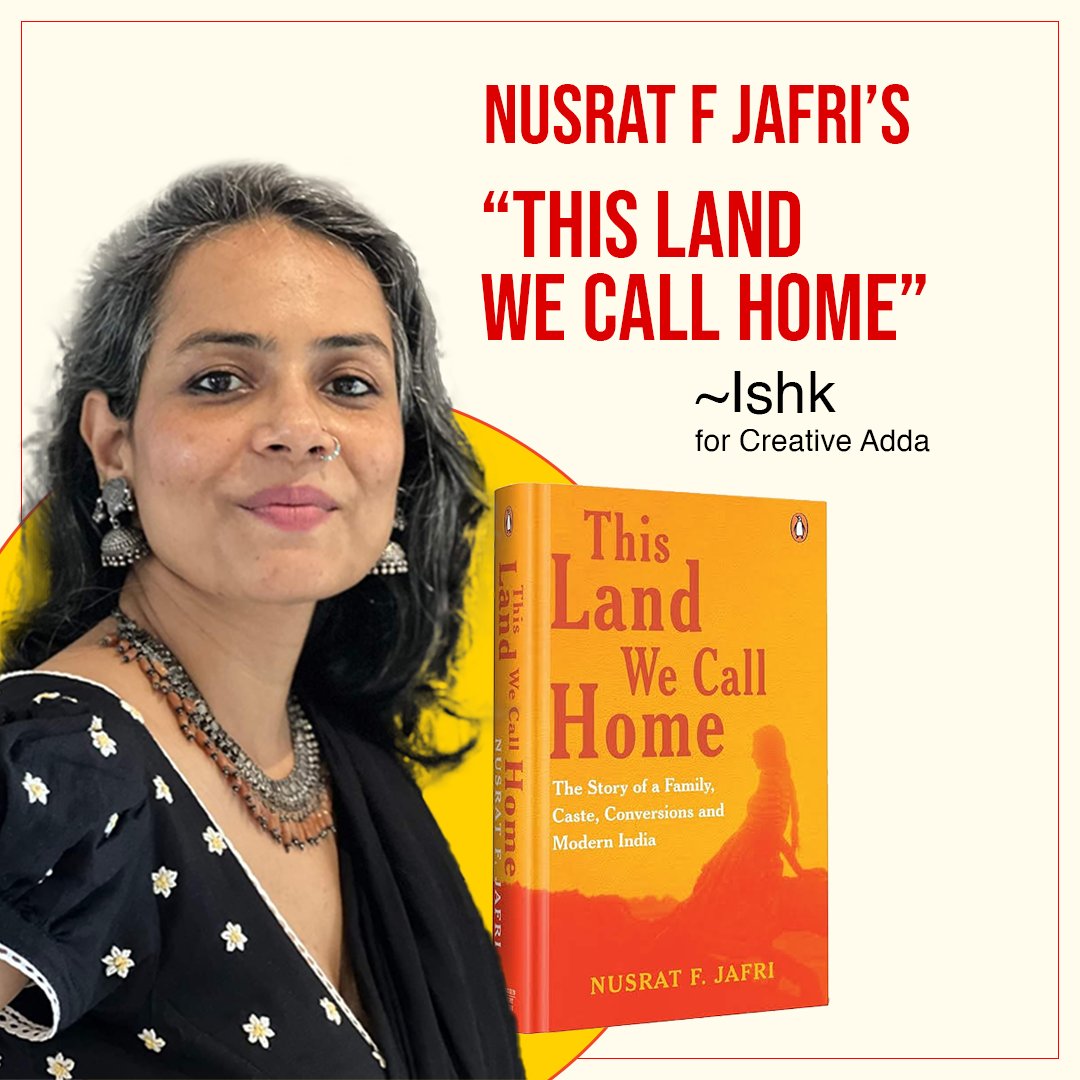 India
India  Sun Mar 2026
Sun Mar 2026
 Ishk
Publish Date:
12 Aug 2024
Ishk
Publish Date:
12 Aug 2024
This Land We Call Home: Heartfelt Exploration of Identity and Belonging
‘This Land We Call Home’ by Nusrat F. Jafri is a thoughtprovoking nonfiction book which delves into the complexities of a family, caste, conversions and modern India. This book perfectly sheds a light on so many issues which are very significant in the Indian society including feminism, women empowerment, Christianity and conversion.
While tracing the roots of her nomadic forebears, who belonged to the so called ‘criminal’ tribe, the Bhantus from Rajasthan, the author exceptionally writes a narrative which is both deeply personal and universally relatable in her debut non fiction book.
The criminal tribes was the word which arose in 1871 after the British enacted the Criminal Tribes Act in India, hence branding the several caste groups and tribes as criminals.
Jafri’s writing seems very engaging, making her book an impressive read and her usage of vivid descriptions and anecdotes brings to life the tangled web of relationships within her family and community. The book wonderfully exposes the reader to the intricacies of the Indian society since the year 1870.
Notably, the one of the major highlights of the book is its ability to balance personal narrative with broader social commentary which perfectly creates a rich tapestry of perspectives. Also, the author has tackled several sensitive topics such as caste, conversion and communalism with sensitivity and courage.
The book begins with an emotional and bold story of Nusrat F Jafri’s maternal great grandparents Hardayal Singh and Kalyani Singh. The book showcases their difficult journey of conversion from Bhantus to Christianity.
According to the book, Bhantus were a tribe of feared outcastes who were known as thieves or petty criminals because the tribe had resorted to burglary and theft as a means of livelihood to save themselves from being converting to Islam.
The book sheds a light on the struggles and hardships endured by these tribes and how they managed to study and work despite facing such challenges. Not only this, but it also mentions how Christianity spread in India and gave the criminal tribes a new ray of light to live their life on their own terms.
The reason behind Bhantus and several other tribes converting to Christianity was because it came with a promise of a casteless new identity and independence, giving them a whole new life in the world full of uncivilized individuals.
In addition to this, during an exclusive interview with Creative Adda, Jafri revealed her desire of wanting to write the story for many years. She said, “It is a part of our history on which there is not much material available so if you want to read about the Bhantus tribe, there is not enough information about them and whatever I heard was from my grandmother and my own mother but these are very small anecdotes and stories and not much about the actual tribe.”
Overall, ‘This Land We Call Home’ is a remarkable non-fiction book which keeps the readers intrigued till the end, leaving them with a feeling what is going to happen next as they keep turning the pages.
While the book could give the readers a sense of being slow at few points, but it is a well-researched and ably written book having a rare account of the so called criminal tribes.
The book will resonate with anyone who is interested in identity, culture as well as social justice. It is perfect for anyone who is a fan of narrative nonfiction and memoirs, those interested in Indian society, culture and history or anyone looking for a through provoking exploration of identity and belonging. The book is also perfect for females who want to know the struggles behind femininity and being a feminist in a world where people are always looking to attack women.



